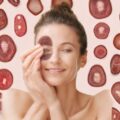Understanding Acne and Rosacea: More Than Skin Deep
Dealing with skin conditions like acne and rosacea can be challenging, both physically and emotionally. While these conditions may seem similar on the surface, they have distinct characteristics and require different approaches for management and treatment. This article aims to shed light on the connection between acne and rosacea, offering compassionate insights and practical advice for those affected.
The Emotional Impact of Skin Conditions
Before delving into the specifics of acne and rosacea, it’s crucial to acknowledge the emotional toll these conditions can take. Many individuals experience feelings of self-consciousness, anxiety, and even depression related to their skin’s appearance. It’s important to remember that your worth is not determined by your skin, and seeking support from loved ones or a mental health professional can be invaluable in maintaining overall well-being.
Acne: More Than Just a Teenage Concern
Acne is often associated with adolescence, but it can affect people of all ages. This common skin condition occurs when hair follicles become clogged with oil and dead skin cells, leading to pimples, blackheads, and whiteheads. While hormonal changes play a significant role, factors such as genetics, diet, and stress can also contribute to acne development.
Treatment options for acne include:
- Over-the-counter topical treatments containing benzoyl peroxide or salicylic acid
- Prescription medications like retinoids or antibiotics
- Lifestyle changes, including a balanced diet and stress management techniques
- Professional treatments such as chemical peels or light therapy
Rosacea: Beyond the Blush
Rosacea is a chronic skin condition characterized by facial redness, visible blood vessels, and sometimes small, red, pus-filled bumps. While the exact cause is unknown, factors such as genetics, immune system irregularities, and environmental triggers can contribute to its development. Rosacea typically affects adults, with symptoms often appearing after age 30.
Common triggers for rosacea flare-ups include:
- Sun exposure
- Emotional stress
- Hot or cold weather
- Spicy foods and alcohol
- Certain skincare products
The Connection Between Acne and Rosacea
While acne and rosacea are distinct conditions, they can sometimes coexist or be mistaken for one another. Both can cause facial redness and bumps, leading to confusion in diagnosis. However, there are key differences:
- Acne typically involves comedones (blackheads and whiteheads), while rosacea does not
- Rosacea often causes persistent facial redness and visible blood vessels, which are not typical of acne
- Acne can affect various parts of the body, while rosacea primarily affects the face
It’s essential to consult a dermatologist for an accurate diagnosis, as treatment approaches differ for each condition.
Holistic Approaches to Skin Health
While medical treatments are often necessary for managing acne and rosacea, a holistic approach to skin health can complement these efforts and promote overall well-being. Consider incorporating the following practices into your daily routine:
- Practice gentle skincare: Use mild, non-irritating products and avoid harsh scrubbing
- Protect your skin from the sun: Wear broad-spectrum sunscreen daily
- Stay hydrated: Drink plenty of water to support skin health from within
- Manage stress: Engage in relaxation techniques like meditation or yoga
- Nourish your body: Consume a balanced diet rich in fruits, vegetables, and omega-3 fatty acids
Remember, everyone’s skin is unique, and what works for one person may not work for another. Be patient and kind to yourself as you explore different treatment options and lifestyle changes.
Embracing Self-Compassion on Your Skin Journey
Living with acne or rosacea can be challenging, but it’s important to practice self-compassion throughout your skin journey. Here are some ways to cultivate a positive mindset:
- Focus on your inner qualities and strengths
- Surround yourself with supportive people who value you beyond your appearance
- Engage in activities that bring you joy and boost your confidence
- Consider joining support groups or online communities for individuals with similar experiences
- Celebrate small victories in your skincare routine and overall well-being
Remember, your skin does not define you, and you are worthy of love, respect, and happiness regardless of its appearance.
Frequently Asked Questions
1. Can acne and rosacea occur simultaneously?
Yes, it is possible for acne and rosacea to coexist, although this is not common. Some individuals may experience symptoms of both conditions, which can make diagnosis and treatment more complex. Consulting a dermatologist is crucial for accurate identification and appropriate management of each condition.
2. Are there any natural remedies that can help with both acne and rosacea?
While natural remedies should not replace professional medical advice, some individuals find relief from both acne and rosacea symptoms through natural approaches. These may include applying green tea compresses, using aloe vera gel, or incorporating tea tree oil into skincare routines. However, it’s essential to patch test any new product and consult with a healthcare provider before trying new treatments.
3. How can I differentiate between acne and rosacea?
While a professional diagnosis is necessary, some key differences can help distinguish between acne and rosacea. Acne typically involves comedones (blackheads and whiteheads) and can affect areas beyond the face. Rosacea, on the other hand, usually causes persistent facial redness, visible blood vessels, and does not involve comedones. Rosacea also tends to develop later in life, while acne often begins in adolescence.
4. Can diet affect both acne and rosacea?
Yes, diet can influence both conditions, although the impact varies among individuals. Some people with acne find that reducing dairy and high-glycemic foods helps improve their skin. For rosacea, common dietary triggers include spicy foods, alcohol, and hot beverages. Keeping a food diary can help identify personal triggers for both conditions.
5. Is it safe to wear makeup if I have acne or rosacea?
Wearing makeup with acne or rosacea is generally safe if you choose the right products and practice good hygiene. Look for non-comedogenic and hypoallergenic makeup options, and always remove makeup thoroughly before bed. Mineral-based products may be gentler on sensitive skin. If you’re unsure, consult with a dermatologist for personalized recommendations on makeup use with your specific skin condition.









